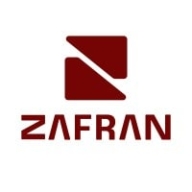


Check Point CloudGuard CNAPP and SentinelOne Singularity Identity compete in the cloud security sector. Based on the comparisons, CloudGuard holds an advantage in cloud compliance and multi-provider integration, whereas SentinelOne is more favorable in endpoint and identity protection.
Features: CloudGuard CNAPP includes automated compliance checks, visibility into cloud security posture, and advanced threat prevention. It integrates with multiple cloud providers and uses machine learning for real-time attack prevention. SentinelOne Singularity Identity specializes in behavior-based threat detection, offering a unified view of threats alongside endpoint protection.
Room for Improvement: CloudGuard CNAPP could improve cloud environment interoperability, support response times, and remediation processes. Extending native cloud integrations is also desirable. SentinelOne Singularity Identity could enhance web filtering, increase endpoint management flexibility, and simplify agent updates and configurations.
Ease of Deployment and Customer Service: CloudGuard CNAPP supports public, hybrid, and private cloud deployments, providing flexibility but has occasionally slow customer service. SentinelOne Singularity Identity supports public and on-premises deployments, offering reliable support, though faster access usually requires additional payment.
Pricing and ROI: CloudGuard CNAPP is often seen as expensive but justified given its extensive security features, based on cloud infrastructure size, though more flexible pricing would be preferable. SentinelOne Singularity Identity provides competitive pricing yet sometimes lacks transparency. There's a need for more flexible licensing options.
| Product | Market Share (%) |
|---|---|
| Check Point CloudGuard CNAPP | 1.1% |
| Zafran Security | 1.1% |
| SentinelOne Singularity Identity | 0.8% |
| Other | 97.0% |

| Company Size | Count |
|---|---|
| Small Business | 55 |
| Midsize Enterprise | 17 |
| Large Enterprise | 57 |
| Company Size | Count |
|---|---|
| Small Business | 4 |
| Midsize Enterprise | 5 |
| Large Enterprise | 13 |
Zafran Security integrates with existing security tools to identify and mitigate vulnerabilities effectively, proving that most critical vulnerabilities are not exploitable, optimizing threat management.
Zafran Security introduces an innovative operating model for managing security threats and vulnerabilities. By leveraging the threat exposure management platform, it pinpoints and prioritizes exploitable vulnerabilities, reducing risk through immediate remediation. This platform enhances your hybrid cloud security by normalizing vulnerability signals and integrating specific IT context data, such as CVE runtime presence and internet asset reachability, into its analysis. No longer reliant on patch windows, Zafran Security allows you to manage risks actively.
What are the key features of Zafran Security?
What benefits can users expect from Zafran Security?
In industries where security is paramount, such as finance and healthcare, Zafran Security provides invaluable protection by ensuring that only exploitable vulnerabilities are addressed. It allows entities to maintain robust security measures while allocating resources efficiently, fitting seamlessly into existing security strategies.
Check Point CloudGuard CNAPP offers comprehensive cloud security with features like dynamic access control, asset protection, and compliance checks, tailored for organizations seeking enhanced governance across AWS, Azure, and GCP platforms.
Check Point CloudGuard CNAPP provides robust capabilities, including centralized firewall management, IAM scanning, and real-time visibility. Its strengths lie in predictive visualization, threat intelligence, and auto-remediation, making it a valuable tool for risk mitigation and compliance management. The platform's integration and responsiveness enhance cloud security, ensuring alignment with industry standards and effective threat protection.
What are the key features of Check Point CloudGuard CNAPP?Organizations in finance, healthcare, and retail frequently implement Check Point CloudGuard CNAPP for compliance and security across cloud environments. It assists with workload protection, threat detection, and regulatory obligation fulfillment, proving effective for securing applications and monitoring API interactions.
Singularity Identity, a component of the Singularity platform, provides threat detection & response (ITDR) capabilities to defend Active Directory and domain-joined endpoints in real-time from adversaries aiming to gain persistent, elevated privilege and move covertly. Singularity Identity provides actionable, high-fidelity insight as attacks emerge from managed and unmanaged devices. It detects identity misuse and reconnaissance activity happening within endpoint processes targeting critical domain servers, service accounts, local credentials, local data, network data, and cloud data. On-agent cloaking and deception techniques slow the adversary down while providing situational awareness and halting adversarial attempts at lateral movement. Singularity Identity helps you detect and respond to identity-based attacks, providing early warning while misdirecting them away from production assets.
Singularity Identity’s primary use case is to protect credential data and disrupt identity-based attacks. The most valuable function of Singularity Identity is its ability to misdirect attackers by providing deceptive data to identity-based recon attacks. Additionally, it can hide and deny access to locally stored credentials or identity data on Active Directory domain controllers.
Singularity Identity also provides rapid detection and respond to identity attacks, capturing attack activity and feeding it directly to the Singularity platform’s Security DataLake for enterprise-wide analysis and response.
By implementing Singularity Identity, organizations benefit from enhanced security, reduced credential-related risks, and improved user productivity. It detects and responds to identity-based attacks, ensuring only authorized individuals can access critical identity data. With its cloaking capabilities to hide identity stored locally on endpoints or in the identity infrastructure and it’s ability to provide decoy results to identity-based attacks, organizations can effectively secure their sensitive or privileged identities, resulting in improved overall identity security.
We monitor all Vulnerability Management reviews to prevent fraudulent reviews and keep review quality high. We do not post reviews by company employees or direct competitors. We validate each review for authenticity via cross-reference with LinkedIn, and personal follow-up with the reviewer when necessary.